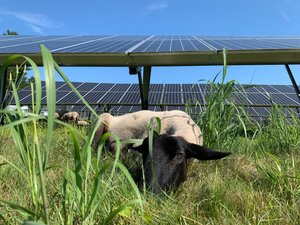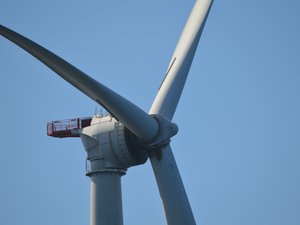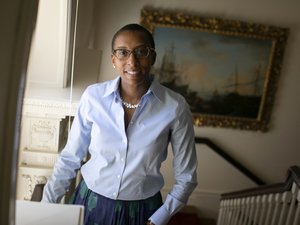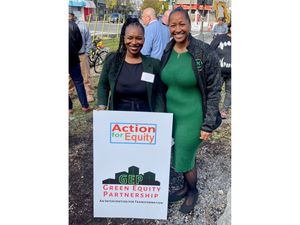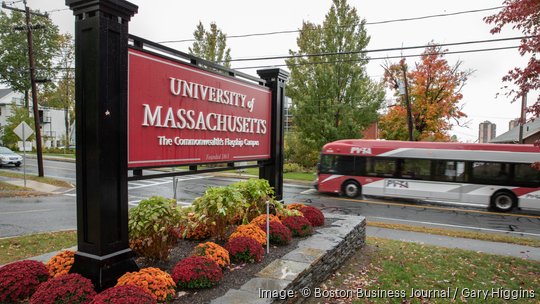
The University of Massachusetts Amherst has been selected by the U.S. Department of Energy to create and develop a multimillion-dollar academic research center to accelerate offshore wind initiatives across the country.
The Academic Center for Reliability and Resilience of Offshore Wind (ARROW) will be based at UMass Amherst and is expected to receive $11.9 million in total funding over five years. Funders include the federal Energy Department, the Massachusetts Clean Energy Center, the state of Maryland, and some of the participating universities, according to a news release from UMass.
“What's enabled by this big investment is for academics to really try to be comprehensive in the way we deliver education, research, and efforts to energy equity,” said Sanjay Arwade, the new director of the center and a professor of civil engineering at UMass Amherst.
The center aims to centralize efforts at UMass and approximately 40 other institutions and organizations. Work will focus on accelerating the deployment of new offshore projects, as well as building a domestic workforce equipped to assist the offshore-wind industry.
- What are your company’s hiring plans? Answer our 1-minute poll here.
Previously, research in the field has been fragmented, with researchers having to compete with one another for limited funding, Arwade said. The new center will build a model for how to bring research initiatives together in a new way.
“What the center allows us to do is think over a larger time scale and ensure that research efforts are not fragmented,” Arwade said.
Undergraduate-level research, energy equity
The new center is expected to enable more comprehensive offshore wind research, Arwade said, as well as establishing a better understanding of everything from the atmosphere to the user experience of flipping on a light switch.
The new funding is also expected to enable more opportunities for bachelor’s degree–level students, who have traditionally had less access to government-funded research. It’s an opportunity to develop a homegrown workforce, Arwade said.
The center will support the education of more than 1,000 students over the five-year period, according to the news release.
With the new initiative, researchers are also committed to energy equity, Arwade said. What that will look less is ensuring that different communities benefit equitably from the creation of new offshore energy initiatives, and will also ensure that the burden is distributed equitably.
Previous energy systems and infrastructure systems have been developed inequitably, Arwade said, pointing to the U.S. highway system as an example. With new efforts now benefiting from hindsight, the center is committed to having equity as a throughline for all its initiatives.
“What we're doing here is building from the ground up,” Arwade said.
The center is part of the Biden-Harris Administration’s goal to have a 100% clean electricity grid by 2035, according to the news release.
The official start date for the center has not been determined yet, Arwade said, though he hopes it will be some time in the next six months.
Sign up for The Beat, BostInno’s free daily innovation newsletter. See past examples here.
